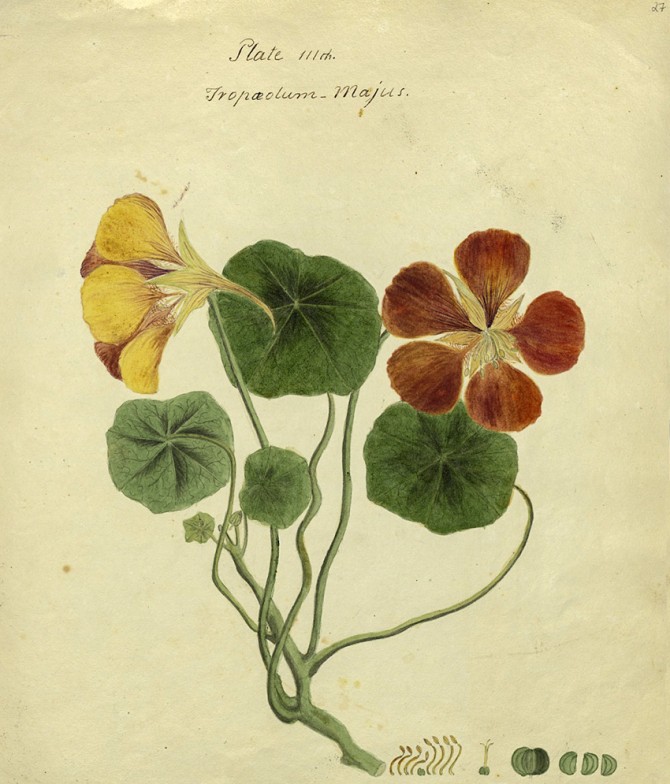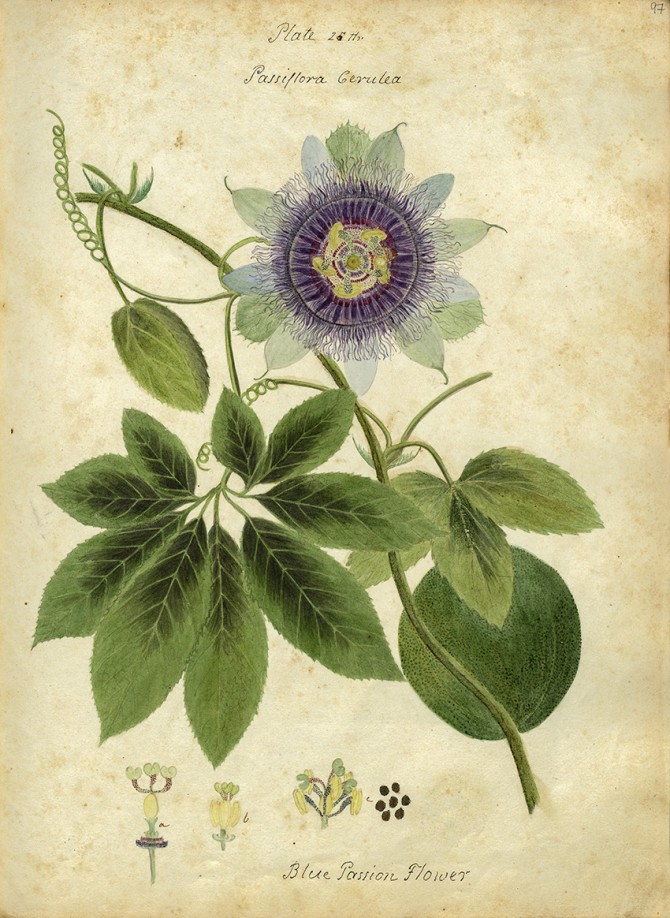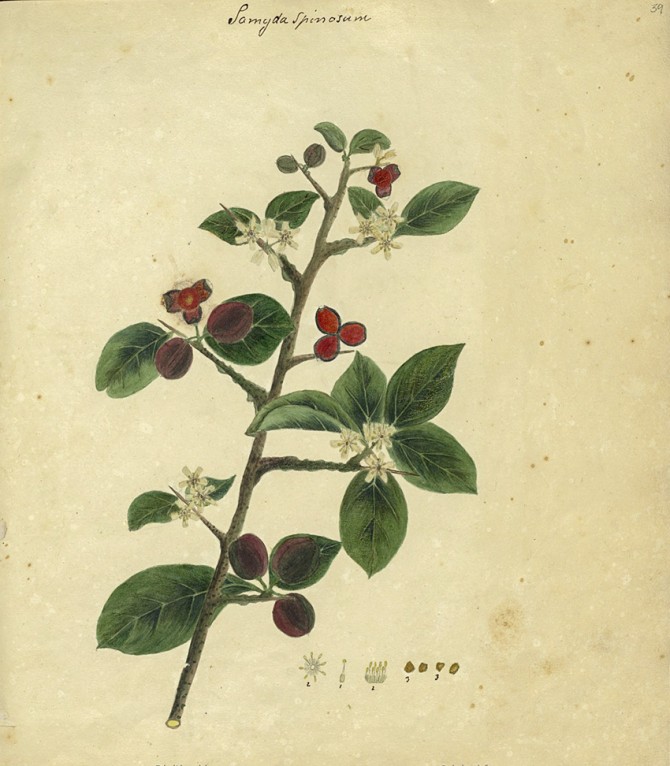An illustrator’s unpublished masterpiece
By Jose Beduya
In 1828, when American expatriate Nancy Kingsbury Wollstonecraft died at 46 in Matanzas, Cuba, her dream of publishing her life’s work of botanical illustrations went unfulfilled. And yet, almost two centuries later, her reputation as a pioneer is just beginning.
Late last year, Cornell University Library’s Division of Rare and Manuscript Collections digitized her three-volume manuscript, “Specimens of the Plants and Fruits of the Island of Cuba,” and shared it on HathiTrust, an online repository accessible to scholars around the world. With 220 pages of text and 121 illustrated plates, the manuscript is meticulously annotated and intricately eye-catching.
“It represents the highly skilled work of a forgotten American woman scientist and botanical illustrator. It is the most important corpus of plant illustrations in Cuba´s colonial history,” says Emilio Cueto, author of “Illustrating Cuba’s Flora and Fauna” and a scholar of Cuban history and culture.
“Cornell should be commended for preserving and digitizing this manuscript,” Cueto adds. “By making it available through the internet, the entire world is now able to appreciate and study this exceptional document and admire [Wollstonecraft’s] truly magnificent undertaking.”
Before its reinvigorated digital incarnation, the manuscript was an obscure family heirloom passed down from generation to generation. It eventually came into the possession of Benjamin Freeman Kingsbury, a distant descendant, who became a graduate student at Cornell and later a professor in the College of Veterinary Medicine. Kingsbury donated the manuscript, along with his other papers, to RMC, where it has been safeguarded since the 1920s.
Anne Sauer, the Stephen E. and Evalyn Edwards Milman Director of RMC, describes the donation as an act of faith in the future and a gift for generations to come. “The story of this amazing manuscript is emblematic of the library’s commitment to building, preserving and making available rich and diverse collections to the scholarly community in Ithaca and around the world.”
Media Contact
Get Cornell news delivered right to your inbox.
Subscribe



